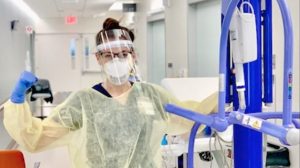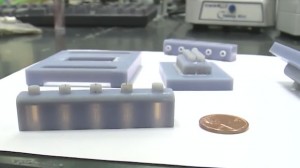NEW YORK (Reuters Health) – Neoadjuvant hormonal therapy for prostate cancer may increase the risk of death in men with coronary artery disease-induced heart failure or myocardial infarction (MI), according to a report in the Journal of the American Medical Association for August 26.
By contrast, this therapy does not increase mortality among men with no comorbidity or just a single coronary disease risk factor, the report indicates.
In the new study, Dr. Akash Nanda, from Brigham and Women’s Hospital, Boston, and colleagues assessed all-cause mortality in 5077 men with localized or locally advanced prostate cancer who were treated with radiotherapy with or without preliminary neoadjuvant hormone therapy.
In men with no comorbidity, treatment with and without hormone therapy was associated with all-cause mortality rates of 9.6% and 6.7%, respectively, during a median follow-up period of 5.0 years (p = NS). In men with a single coronary disease risk factor, the corresponding rates were 10.7% and 7.0% (p = NS) during 4.4 years of follow-up.
When neoadjuvant therapy was given to men with coronary disease-induced heart failure or MI, however, a significant increase in all-cause mortality was noted: 26.3% vs. 11.2% (p = 0.04), the researchers found.
“This study should heighten awareness about the potential for harm with neoadjuvant hormone therapy use in select men,” the authors conclude.
Reference:
JAMA 2009;302:866-873.




